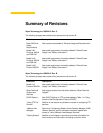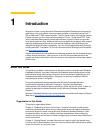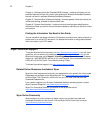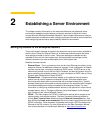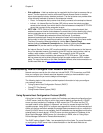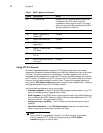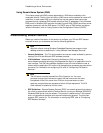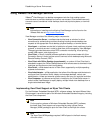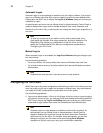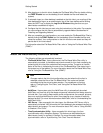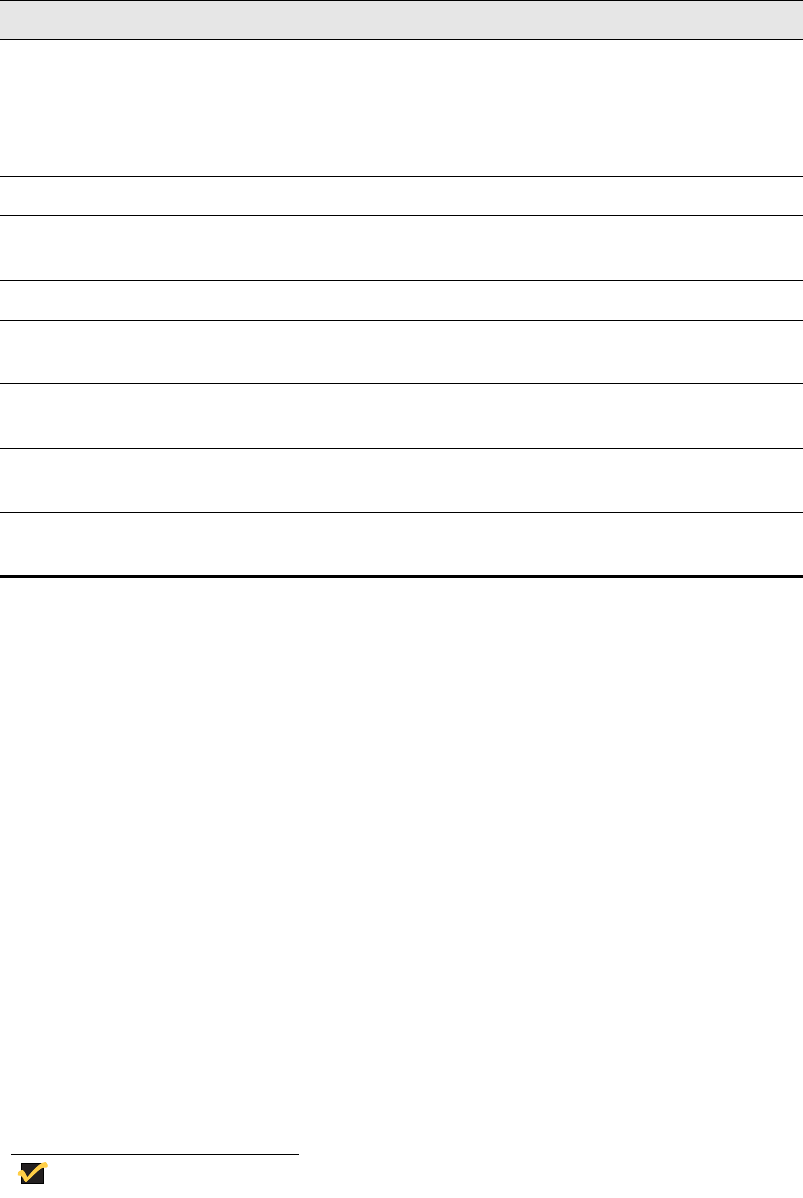
6 Chapter 2
Using FTP File Servers
Windows Embedded Standard includes an FTP Upgrade utility that can be used to
upgrade the Windows Embedded Standard thin client with Addons which are in Microsoft
.msi form. This utility allows you to automatically or manually upgrade a thin client by
downloading MSI packages from a specified FTP server. The MSI packages are stored on
the FTP server in a directory in the FTP root path (this FTP file server name and root-path
directory must be made available to the thin client). To select the upgrade options you
want, use the FTP Addon Installer dialog box on the thin client as described in "Installing
and Upgrading Addons Using the FTP Addon Installer."
Use the following guidelines to set up your servers:
• Automatic upgrades - Params.ini and the MSI package must be present on your FTP
server (in the same path) to upgrade the thin client.
• DHCP upgrades - If the DHCP server is supplying the location of the MSI package, be
sure to configure the DHCP Options (in
Table 1) that you need (defaults are 161 - FTP
server list and 162 - Root path to the FTP files).
• Anonymous log-on capability - The FTP server must provide anonymous log-on
capability.
• User ID and Password - In the FTP Addon Installer dialog box, the default User
name is anonymous and the default Password is Wyse.
Note
Use of DHCP is recommended. However, if a DHCP server is not available,
fixed IP addresses (FTP Path) can be assigned using the FTP Addon
Installer dialog box on the thin client.
161 FTP server list Optional string. Can be either the name or the
IP address of the FTP server where the
updated thin client image is stored. If a name is
given, the name must be resolvable by the DNS
server(s) specified in Option 6.
162 Root path to the FTP files Optional string.
163 SNMP Trap server IP
Address list
Optional.
164 SNMP Set Community Optional.
165 RDP startup published
applications
Optional.
166 Ericom – PowerTerm®
TEC Mode
Optional.
167 Ericom – PowerTerm®
TEC ID
Optional.
168 Name of the server for the
virtual port
Optional.
Table 1 DHCP Options, Continued
Option Description Notes




